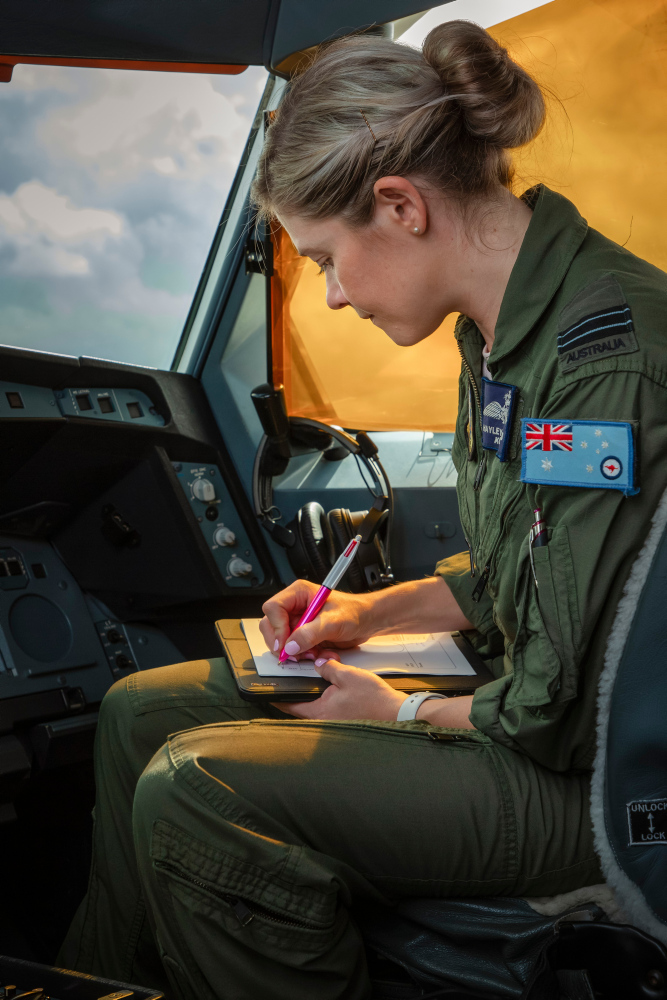This article is part of the Propel Her – Defence Women’s Leadership Series. Follow the series and join the conversation via #PropelHerAus.
I remember very distinctly when I first became a supervisor.
I was excited to manage people because I could see their potential, like long shadows of themselves on the ground stretched out by the sun. I was fascinated by the challenge to help others grow into their shadows.
For leaders out there, the challenge will always be their ability to grow and develop their people’s potential. And it is difficult, because you spend so much time trying to tell them how great they could be if only they did this one thing or overcame this one flaw. It can be both immensely rewarding and frustrating.
It wasn’t until many years later, after trying different management approaches, that I came across the concept of coaching.
Coaching is the easiest and simplest way to get people to notice their shadow. Coaching can help them grow into their shadow and then if they spend enough time doing that, stretch their shadow to the greatest height using the sun and their surroundings.
However, if there is one thing I’ve learnt, it is that I am not always the right coach for someone. And when I get requests for coaching, I am always upfront about what I can do and what another coach might do better.
How do you choose the coach for you?
Before you start the process of choosing a coach, consider that this coach will need to suit you now, and may or may not be the right coach for you later on. Coaches come with different methods, specialities, skills, experience and different communication styles. In the future, you may wish to consider a different style of coach who will challenge you differently.
There are 3 key decisions that will help shape what kind of coach you should look for. To start with, focus on one of the following areas that you would like to work on in your goals:
1. Coaching Type
What people might find is that some coaches cross over into different types of coaching which is great! Not all coaches will though and some will specialise in a category without being explicit about it. Choose a coach that aligns to your purpose.

2. Communication style
The second decision to selecting a coach is to consider the different communication style that works for you. Are you someone who needs to have everything written down, or communicate with visual language? Are you highly structured or prefer free flowing conversation? Some coaches use personality test methods such as DiSC, Myers Briggs or Neuro-linguistic Programming to outline the differences in communication preferences. No matter what method you use, knowing what your preferences are will help you connect better with your coach. Most coaches also provide opportunities to explore this with you in your initial session.
3. Trust and rapport with your coach
The last decision is the most important – you need to trust your coach. If you find through trying to build rapport in your relationship that you just don’t have trust in your coach, then this coaching relationship will only go so far and you may not be comfortable getting to the heart of what is holding you back. It may even get in the way of identifying your goals.
When you think about how to choose a coach, always ask yourself what do I want out of coaching? What goal/s do I want to achieve? Have an idea about what they may be able to help you with, and what mode of communication style you would prefer – even if that is something completely opposite from what you normally would choose so it challenges you to develop!
Resources:
International Coaches Federation – Find a Coach
Standards Australia – Coaching in Organisations
Access to the free Air Force Leadership Coaching Program is available on the Defence Protected Network (DPN) through Air Force Adaptive Culture airforce.coaching@defence.gov.au.
The Navy Leadership Coaching Program is available to all ranks- further details are on the DPN through the Directorate of Navy Culture or navy.leadershipcoaching@defence.gov.au
About the author
Anna Calder (MBM:HR, BBus, ICF ACC Coach) is currently the Acting Director of Defence People Strategies in Defence People Group. Anna is also an elected councillor of the ACT Australian Human Resource Institute Council and on the International Coaches Federation ACT Chapter Leadership Team.

